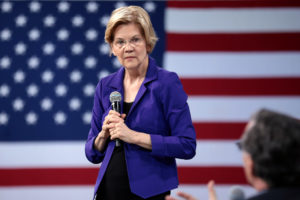
Singapore has been under an unprecedented amount of limelight recently for a number of reasons. The first, which really thrust the tiny country into the arms of the mass media, was the North Korea-United States summit of June 2018. The fateful meeting between U.S. President Donald Trump and North Korean Supreme Leader Kim Jong-un took place at the luxurious Capella Resort on Singapore’s resort island of Sentosa. The second, more pop culture-related attention that Singapore has been receiving is from the release of the romantic comedy Crazy Rich Asians. Both forms of exposure are different in their mediums, but they both paint Singapore in a similar fashion: a small-scale luxurious destination. What the general population is unaware of, however, is that Singapore has been ruled by the same political party, the People’s Action Party (PAP), since its independence from Malaysia in 1965. Some even label Singapore as a single-party state, a term that instills fear in those who remember the days of Stalinist Soviet Union and the Iron Curtain over East Germany. However, Singapore’s one-party majority is less dictatorial and more anti-corruption, according to the Corruption Perceptions Index.
Singapore takes the form of a parliamentary representative democratic republic inspired by the British Indian laws of the British Raj. However, despite being a democratic republic, the Singaporean government has rejected many liberal reforms, and the laws have been known to crack down on free speech, which has been justified by claims that Singapore is too multi-religious and multicultural to be able to withstand violence from free speech. Those who are more familiar with Singapore’s election cycle know that Singapore isn’t actually a single-party state by standard definition, but a representative assembly that has seen a PAP-majority since the first ever election. What is interesting to note is that although the PAP has been winning 82 of the 84 seats in the assembly, the party has seen a decline in the popularity, with the last election in 2011 showing a 6.46 percent decline in the popular vote. This is important to acknowledge as voting is mandatory in Singapore and the country works on a first-past-the-post voting schedule, sometimes referred to as a winner-takes-all. Political pundits have noted the gradual but evident decline in the popularity of the PAP, dispelling the idea that Singapore will continue to be ruled by the same party for decades to come.
Singapore has been ranked the least corrupt country in Asia by Transparency International on a consistent basis and is currently ranked the seventh least corrupt country in the world by the Corruption Perceptions Index (CPI). It has also been consistently ranked in the top 10 cleanest countries in the world. These are examples of where the PAP has done something right, to a certain extent. Singapore, however, has also been classified as a flawed democracy by the Democracy Index, in part due to Singapore’s lack of free press, freedom of speech, and political rivalry during election season. Even so, acknowledging that voting is mandatory in the country, the lack of opposition towards the PAP couldn’t possibly be because of a passive voting population. Rather, a different political majority would mean an unknown political direction for Singapore, something that could deter citizens who have only seen the power of the PAP. Hopefully, the near future will see more political diversity in elections that can help Singapore shed its single-party state image.



